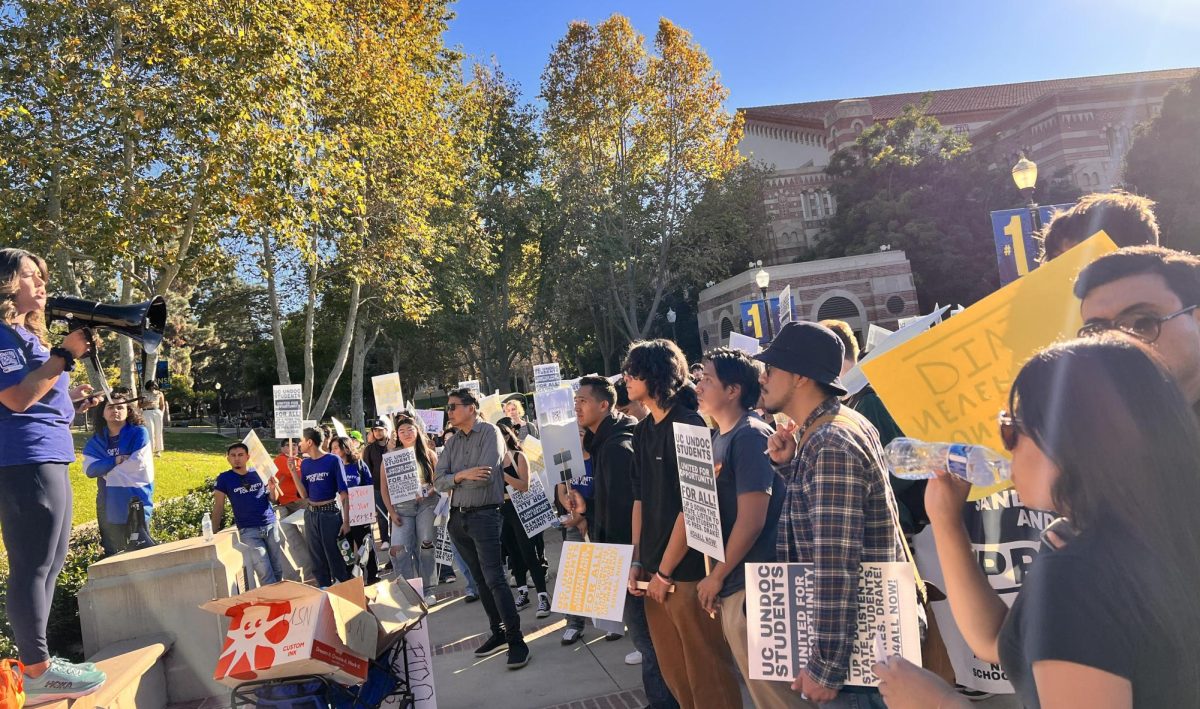Following vocal protests and a three-day hunger strike by University of California students across campuses statewide, UC Regents nonetheless voted last month to reject a plan that would have granted equal access to employment opportunities for an estimated 4,000 undocumented students in the UC system.
The Opportunity 4 All (O4A) proposal, which regents voted down at a Jan. 25 board meeting at UCSF, sought to give thousands of students at UC schools a chance to earn a paycheck by working legally on campus.
In response to the Regents’ decision, students expressed a mixture of frustration, disappointment, and determination to continue their battle.
“While it is disheartening, we want to make it clear that we will continue the fight for equity,” said the group IDEAS (Improving Dreams, Equity, Access & Success), which helped lead the protests at UC Berkeley.
The hunger strike that included more than 30 students across various campuses aimed to shed light on the plight of undocumented students and their limited access to employment opportunities. There are an estimated 83,000 undocumented college students in California. However, only 14 percent of those who apply receive financial aid of any kind.
Members of the Undocumented Student-Led Network (USN) — an advocacy group of undocumented students across the UC system — launched the O4A campaign in October 2022 with backing from professors at the Center for Immigration Law and Policy (CILP) and the UCLA Labor Center.
The Regents’ rejection of the student-led O4A campaign has now become a focal point for students and activists who argue that denying equal employment access not only perpetuates financial hardships for these students but also contributes to a sense of exclusion and marginalization.
Students and groups such as IDEAS at Berkeley and the USN are expressing their outrage and disappointment at the deferral of Opportunity 4 All, not only through protests on campus but also by speaking out on social media.
“We as UC students deserve so much more from our university leadership. This is not the end of our fight for equality,” Jeffry Umaña Muñoz, a leader at the Undocumented Student-Led Network (USN), said in a statement released in response to the ruling by the UC regents.
Supporters of the proposal claimed that as a state agency, the University of California is exempt from a federal law that bars employers from hiring undocumented immigrants.
However, the Regents ultimately decided that the risk the plan posed to the UC system was too great. “We have concluded that the proposed legal pathway is not viable at this time and, in fact, carries significant risk for the institution and for those we serve,” said UC President Michael Drake during the UC Regents meeting last month.
If they were to follow through with the O4A plan, Drake says the UC system could be subject to civil fines, criminal penalties, or debarment from federal contracting if the university is found to be in violation of the Federal Immigration Reform and Control Act.
The plan’s rejection underscores the broader challenges universities face in navigating complex legal landscapes while striving to create inclusive environments for their diverse student body.
The decision comes at a critical juncture for undocumented students in the state, particularly with the halt to new DACA applications following a federal ruling in 2023.
DACA, or Deferred Action for Childhood Arrivals, is an administrative relief program that gave certain undocumented youth who came to the U.S. as children work permits and protection against deportation.
Following the federal ruling, new DACA applications are prohibited from being processed. California has the largest population of undocumented students, and the freeze on new applicants has left many of the tens of thousands of undocumented college students in the state without the shield of DACA, according to data from Cal Matters.
In light of these challenges, advocates see programs like Opportunity 4 All as crucial for providing support and pathways to success for undocumented students.
The Regents’ decision marked a setback to those efforts. But for supporters of the proposal, it also served as a rallying cry to continue the fight for equal opportunities and inclusivity within the University of California system.
“We are not defeated,” a statement from the USN read.
“Our Network and undocumented students more broadly, not just at UC, but across California and the nation, have never been more energized, empowered, and determined to share our stories, build power with one another, and redesign the world with our vision of collective and restorative liberation,” the statement continued. “The work for our Network and the O4A Campaign continues immediately.”





































































